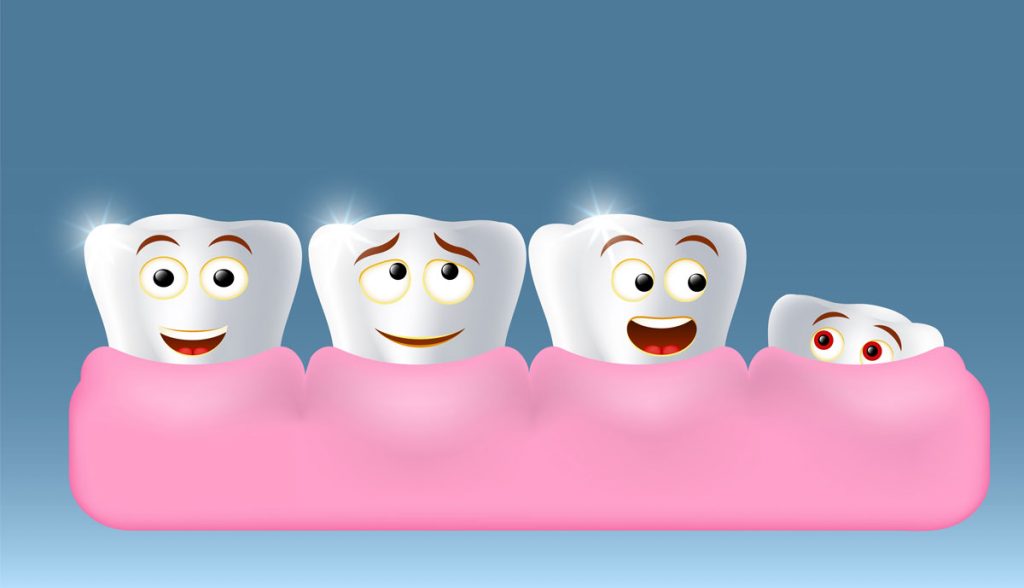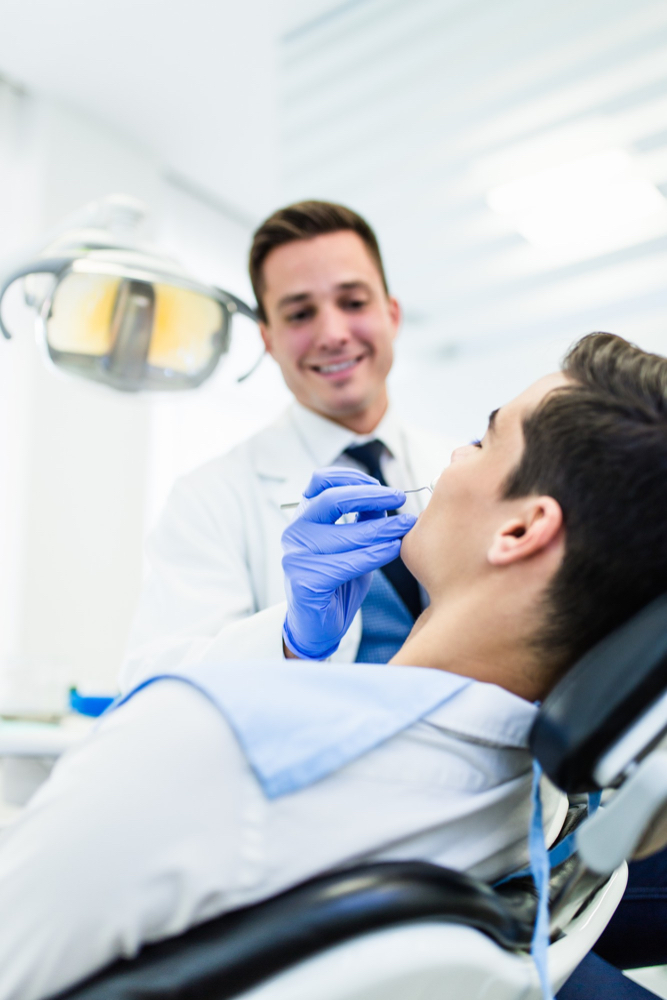
What is pericoronitis?
Pericoronitis is an infection associated with partially erupted or unerupted wisdom teeth. Wisdom teeth or third molars are the large back teeth and the last teeth in the oral cavity.
Wisdom teeth generally come out in the mouth between the age of 18-25 years.
However, third molars are known for their notorious and disruptive erupting and growth patterns. Wisdom teeth may come out entirely as they are supposed to, and at times due to the lack of space in the mouth, they come out at unusual positions. They can erupt at different angles and or may only come out partially. Sometimes, they may get no space to come out, due to which they get stuck inside the jawbone.

Third molars are also more susceptible to dental decay and various other infections. Partially erupted wisdom teeth may still be slightly covered by the gum. This creates a small gap between the wisdom tooth and the gum flap, which is a great hiding spot for bacteria. These areas are difficult to keep clean and may get missed during regular hygiene practices.
This gives a perfect chance to the bacteria-laden plaque to infect the wisdom tooth and the gum flap covering teeth. The bacteria in the dental plaque release toxic and acidic by-products, leading to dental decay of the wisdom tooth and an infection known as pericoronitis.
What are the symptoms of pericoronitis?

You may be suffering from pericoronitis if you experience any of the symptoms mentioned below:
- Toothache and pain in the around upper or lower wisdom tooth.
- Pain of pericoronitis is generally persistent and throbbing, and it may also radiate to the jawbone, neck and front of the ear.
- At times, an infected third molar can also trigger headaches, which is concentrated near the temples.
- Pericoronitis can progress to cause facial swelling.
- It may be associated with pus discharge.
- The gums surrounding the third molar will be inflamed, causing swelling.
- It can cause difficulties with mouth openings and make chewing painful.
- Foul taste and bad breath may accompany the infection.
- Loss of appetite.
- In cases of untreated pericoronitis, the facial swelling may advance and involve the neck and facial spaces leading to blockage of airways and cause breathing difficulties. This is a life-threatening situation and needs to be treated promptly.
- The lymph nodes under the jaw become tender and swollen.
In addition to this, the bacteria causing pericoronitis may find a way to enter the bloodstream, generate a generalised inflammatory response, and infect other organs. It can lead to a dangerous condition called sepsis which requires urgent medical attention or can prove fatal.
Therefore, it becomes essential that you schedule an urgent dental appointment with us at our clinic on the first sign of pericoronitis.

What causes pericoronitis?
As mentioned above, a partially erupted wisdom tooth is covered by a gum flap known as the operculum. Bacteria, food debris, and other disease-causing agents get trapped within the flap, irritating the gums and leading to its inflammation.

Risk factors for pericoronitis
There are certain risk factors that can increase your risk for pericoronitis; these include:
- Being between the age of 18-25, third molars are known to erupt during this age.
- Poor oral hygiene.
- Stress and fatigue.
- Pregnancy.
How is pericoronitis diagnosed?
Our dentist will examine your oral cavity to look for signs and symptoms of pericoronitis. They may also take some x-rays with the concerned tooth to confirm a case of pericoronitis.

What are the treatments for pericoronitis?
Treatment for pericoronitis at our dental clinic focuses on pain relief, eliminating the infection and removing infected tissues.
Our dentist will put you on a course of antibiotics to reduce the bacterial load. They may also prescribe you painkillers for a short duration to help with pain relief.
Our dentist may advise you to undergo a deep cleaning procedure at our clinic, which will help remove all the plaque and debris accumulation near the wisdom tooth.
A minor procedure known are operculectomy is performed to remove the gum flap covering the third molar. Our dentist will first administer anaesthesia and then use a scalpel to remove the gum flap carefully. In the absence of operculum, bacteria and food debris will now have no place to hide and maintaining good oral hygiene becomes possible.
In severe cases of infection where the third molar is decayed, our dentist will perform a wisdom tooth extraction to prevent further complications.

Possible complications of pericoronåitis
The most disturbing complication of pericoronitis is pain and facial swelling which causes difficulty performing everyday activities. The infection can progress to involve surrounding facial and neck spaces and lead to Ludwig’s angina which is a life-threatening condition as it blocks the airway. Another complication of untreated pericoronitis is sepsis.

How to avoid pericoronitis?
To dodge your chances of suffering from pericoronitis, you must take proper care of your oral health. Brush twice a day properly and cover each tooth surface. Use floss to clean the area that a toothbrush cannot access. You can also use a mouthwash to supplement your regular oral hygiene methods.
Lastly, it is crucial that you visit us for a dental check-up at least once every six months. This will ensure you get prompt treatment if any initial infection is seen and allow you to stay at the top of your oral health.
